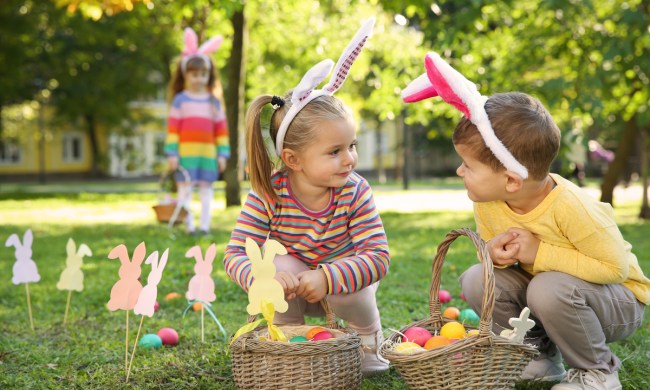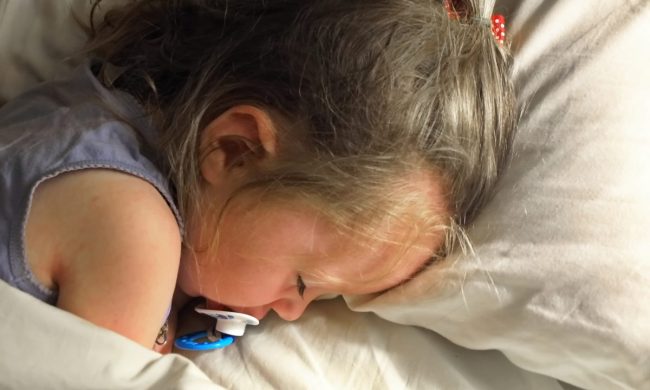Once your child hits a year old and can have something other than formula or breast milk, you might wonder what else you’re going to offer them. If you’ve looked at the drink aisle at your grocery store, your eyes might have been overwhelmed with all of the possibly best drinks for toddlers.
If you are unsure about which choices are healthy and safe for your little one to have, that’s okay. We narrowed it down to these toddler drinks that your child will like and are actually good for their little body.
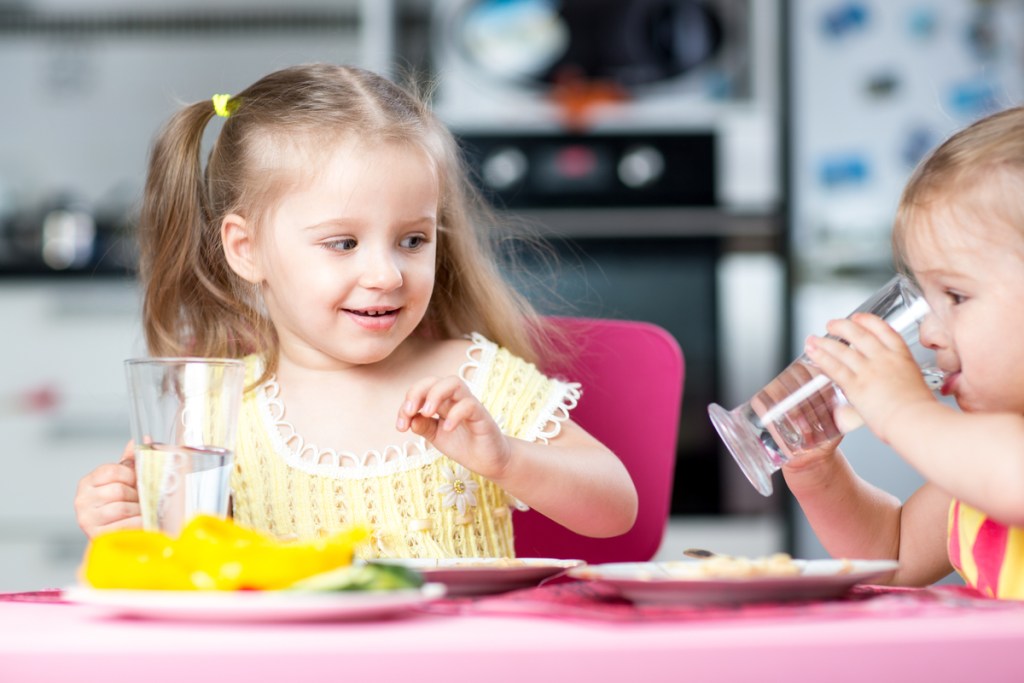
Water
This is all we drink at home, to be honest. Cold, room temperature, with ice, without – there are so many ways to drink a glass of good old water. It’s the most hydrating and the most beneficial for your toddler’s little body.
Water will help your mini regulate their body’s temperature and is so important for the proper function of their organs. It should really be your first go-to offer every time your child is thirsty.
It’s also the best drink to give that won’t mess with their teeth. There are no sugars, no additives, and no other ingredients to worry about. Keep them hydrated with the best option for a drink – water.
Flavored water – but natural
If your child gets tired of regular water (don’t we all sometimes) then you should switch it up like you would for yourself.
Try
- Adding fruit
- Adding herbs
- Make different combinations
- Drink it with your child
We love refreshing infused water. It might require a little prep work of cutting up the fruit and herbs to add, but you can turn that into a fun little project to do with your toddler. Let them pick the combinations they like.
Tea
Look for
- Herbal teas like chamomile, mint, or lemongrass
- Non-caffeinated
Not all tea will be okay for your toddler. But if you want something other than water or milk and still stay away from those sugary drinks, tea is a perfect option. Many teas are very calming and relaxing and can offer health benefits like anti-inflammatory properties. Most teas are caffeine-free and easy to brew at home.
You’ll want to make sure the tea has cooled off enough to not burn your child’s throat. Let it settle to a warmer temperature or pop it into the fridge for refreshing iced tea for later.
Chamomile tea can help alleviate a gassy tummy and ease anxiety. You could both use a calming cup of chamomile tea at the end of the day, right?
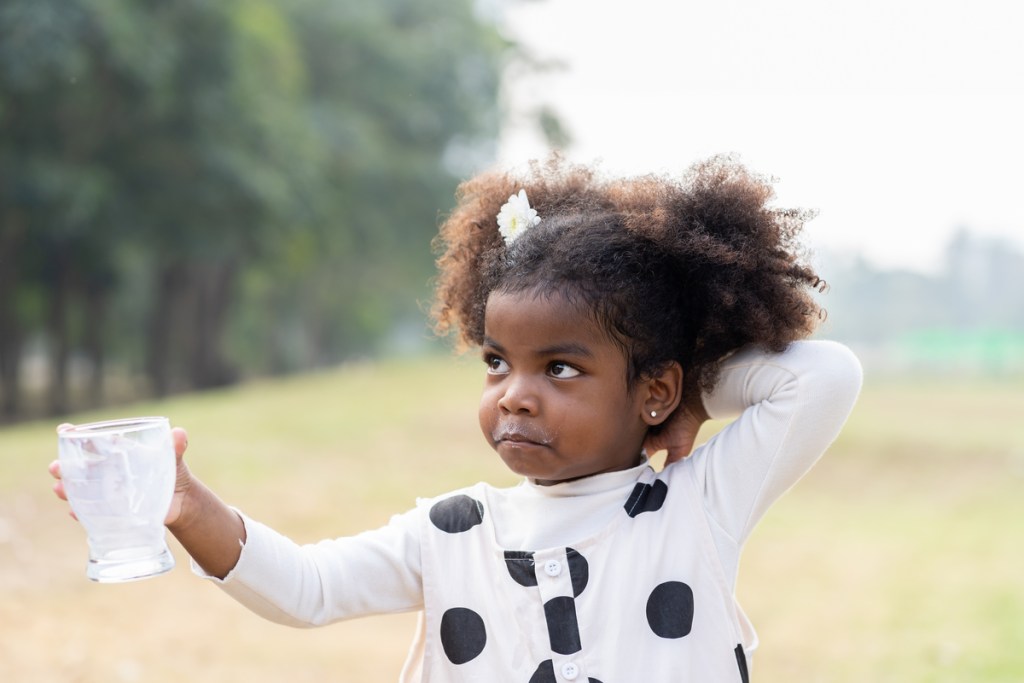
Milk
Milk is an easy option for a toddler to drink. But you do need to pay attention to what kind you give them. Stay away from that skimmed-down milk.
Try
- Unsweetened plant-based milk
- Unsweetened regular milk
- Milk with high fat
Unsweetened is the key. You don’t need to start ramping up your child’s sugar intake. We know kids love those chocolate and strawberry flavored kinds of milk, but limit them to special occasions.
Go for the fatty milk. Those little cheeks need to stay plump. Grab 2% or whole and skip on the skim to get them the calcium, vitamin D, and zinc they need.
Healthy smoothies
We aren’t talking about that store-packaged stuff. You’ll need to make these smoothies. You don’t want all of that added sugar.
You can be sneaky with these. If your toddler doesn’t like to eat certain vegetables, you can put a small amount in the smoothie and they’ll never know.
Ingredient options
- Unsweetened milk
- Leafy greens – spinach, kale
- Fruits
- Vegetables
- Oats, flax seeds
- Cocoa powder
The nutrients and minerals your little one will get make giving them a smoothie a healthy option. You could make “Smoothie Sunday” a thing and have your child help you, even if it’s just pushing the buttons on the blender.
On occasion – real 100% juice
Pro tip
- Dilute the juice with water
Though juice does contain sugar, 100% juice is okay in small amounts. Taking the sugar part away, real juice has nutrients that are good for your child. But ideally, your toddler shouldn’t have more than 4 ounces of juice per day.
Try diluting the juice before giving it to your child. You can do half water, half juice, or mostly water with just enough juice for flavor. The juice won’t taste as sweet to them and it will last longer.
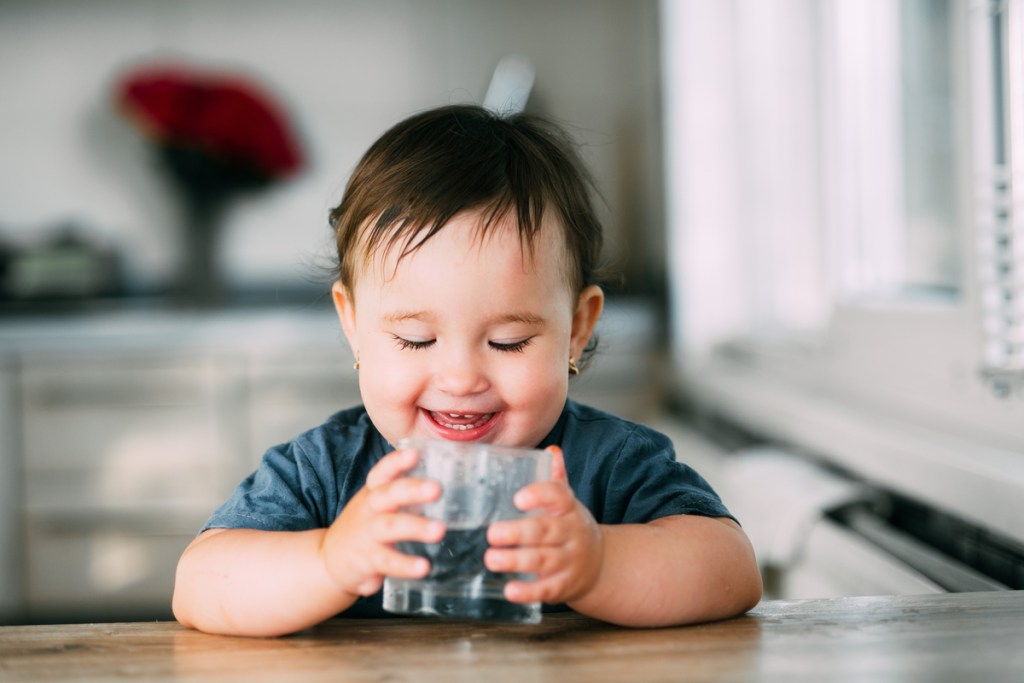
What to steer clear of
There are drinks you shouldn’t offer your toddler. It might be easy to grab any drink off of the shelf without looking at it, but you need to.
Keep away from
- Fruit drink from concentrate (or other not 100% juice drinks)
- Vitamin waters
- Sports drinks
- Soda
- Energy drinks
- Caffeinated drinks
The additional sugar alone is reason enough to steer clear. Not only will these kinds of drinks wreak havoc on your child’s stomach, but they are also harmful to your child’s teeth, and can lead to childhood obesity. But anything with caffeine can lead to your child’s sleeping being completely out of whack, headaches, and tummy issues.
The first drinks you start offering your child will help shape what they drink for their whole life. We know the marketing gimmicks aimed at parents for this drink or that drink are overwhelming. The best drinks for toddlers are ones without additional sugars, without caffeine, and without all of those preservatives. Keep your tiny human’s tummy healthy with a good rotation of these toddler-friendly drinks.

